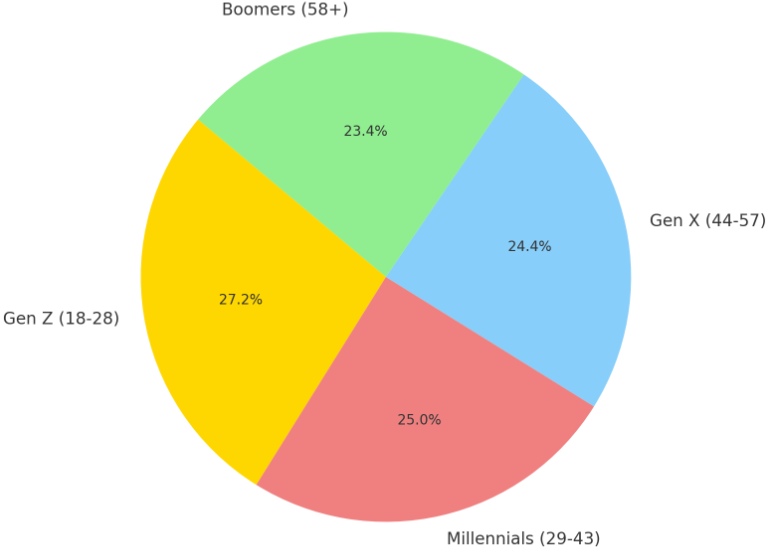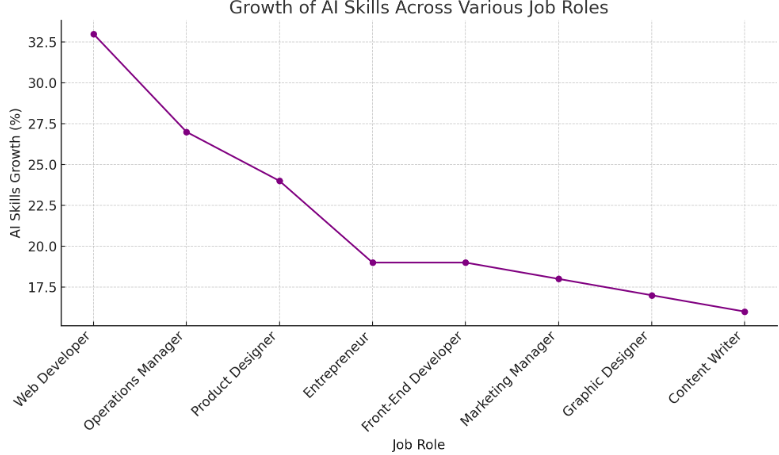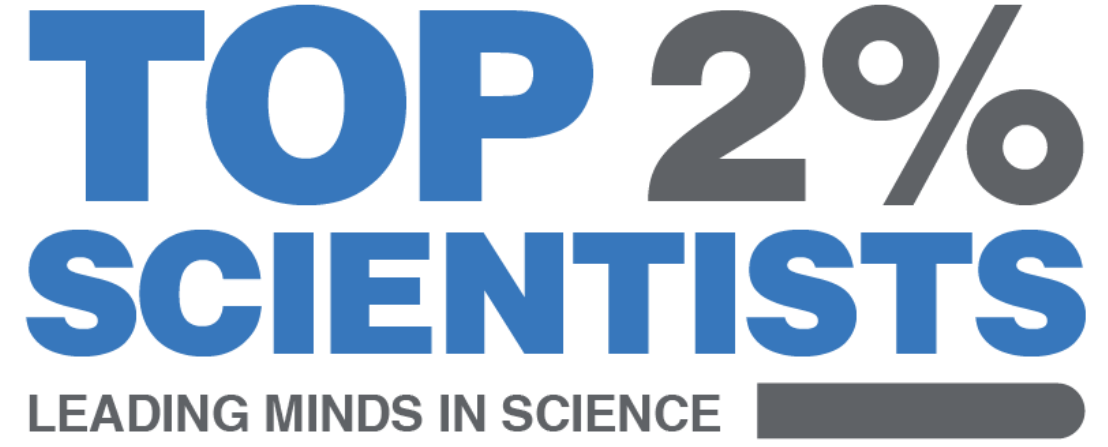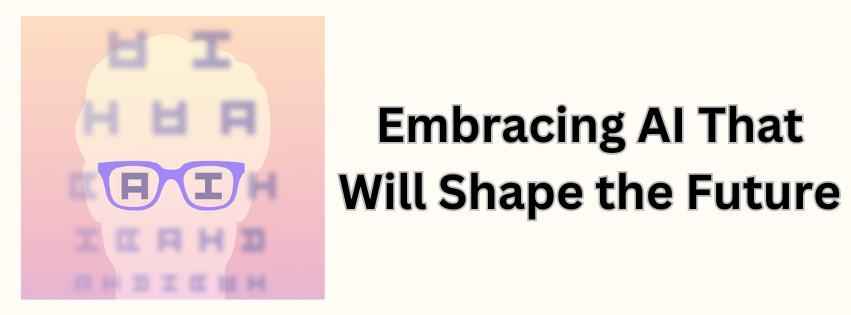In 2024, the workplace is undergoing a significant transformation, primarily due to the empowering influence of artificial intelligence (AI). A comprehensive report from Microsoft and LinkedIn delves into how AI reshapes work and highlights its potential for positive changes. This blog post focuses on the report’s promising aspects, sparking hope and excitement about the future of work in the AI era. In this blog, discover how the future of work will change using AI, which empowers employees and transforms industries to be more creative and engaged.
AI has swiftly transitioned from a futuristic concept to a practical tool in our daily work lives. A recent report reveals that 75% of workers worldwide integrate AI into their daily tasks. Even more striking is that nearly half of these workers (46%) have only started using AI in the past six months. This rapid adoption of AI underscores the urgency for us to adapt to this evolving technology. The benefits are significant, with 90% of workers saving time and 85% finding that AI helps them focus on the most critical parts of their jobs, enhancing work efficiency.
AI Adoption by Knowledge Workers Across Regions
| Region | AI Adoption Rate (%) |
|---|---|
| North America | 66% |
| Latin America | 82% |
| Asia-Pacific | 83% |
| Europe | 65% |
AI Usage Across Generations (BYOAI)

AI technology is revolutionizing our work, empowering employees to be more creative and engaged. However, the rapid proliferation of AI tools also presents challenges. Many workers, particularly in smaller companies, use AI tools without official guidance (78%) admit to bringing their AI tools into their workplaces. This trend underscores the importance of aligning company plans with employee needs and the necessity for official guidance on AI tool usage to ensure a secure and well-informed work environment. There’s no need to fear AI replacing your job entirely. It’s more likely that AI will enhance the work people do. Many business leaders express that they value AI skills in potential hires, often preferring a less experienced person with AI knowledge over a more professional person without. This reassurance should instill confidence in the audience about the role of AI in their job security.
AI is becoming essential in many different jobs. People are learning how to use AI tools like ChatGPT and Microsoft Copilot to help them in their work. Even people who aren’t technical experts are taking courses to learn more about AI. Recently, there has been a significant increase in the number of AI courses taken by non-technical professionals on LinkedIn Learning. This shows that knowing about AI is becoming as important as knowing about other essential things for your job. The job market is evolving in response to the rise of AI. More than 68% of the fastest-growing job roles, such as Head of AI, did not exist two decades ago. This indicates that AI is not only creating new job opportunities but also reshaping the skills that are valued in the modern workforce. It’s becoming increasingly clear that knowing about AI is as important as learning about other essential things for your job. The following is one of the example how AI empowers employees and transforms industries

A recent report sheds light on the rise of AI “power users,” who fully integrate AI into their work routines and see significant boosts in productivity. According to the report, those who regularly experiment with AI save over 30 minutes daily using AI for crucial tasks. They also report feeling more creative, focused, and motivated at work.
The report suggests that frequent experimentation with AI is the most significant predictor of becoming an AI power user. Those who become power users are likelier to try different ways of using AI and adapt their workflows to incorporate AI. This indicates that the future of work may favor those open to experimenting and adapting AI solutions to their specific needs.
Despite widespread AI adoption among employees, AI strategy has a notable leadership gap. While 79% of business leaders agree that AI is crucial for staying competitive, 60% feel that their organization needs a more detailed plan for AI integration. This hesitancy at the top is causing a bottleneck, slowing down the broader transformation needed to harness AI’s potential fully. Your leadership is vital in navigating this journey.
AI power users are often found in organizations where senior leaders promote AI. These employees are likelier to hear about AI’s importance from their CEOs and other leaders. This underscores the crucial role of top-down support in fostering a culture of AI innovation and suggests that organizations lagging in AI adoption need more proactive leadership engagement to catch up and thrive in the AI-powered future. Leadership’s active promotion of AI is key to fostering a culture of AI innovation and accelerating AI adoption.
The 2024 Work Trend Index offers clear guidance for organizations leveraging AI’s potential. First, companies should identify specific business challenges and use AI to streamline and optimize those processes. For instance, companies like Estée Lauder already use AI to revamp product development and improve customer experience. Focusing on one method at a time can unlock efficiency gains and return on investment.
Secondly, organizations should embrace a top-down, bottom-up approach. Leadership must engage at every level to drive AI adoption, from entry-level employees to C-suite executives. Internal champions who model and promote AI use are critical to fostering widespread enthusiasm and aptitude within teams.
The 2024 Work Trend Index demonstrates that AI is reshaping how we work. Employees are already using AI to enhance creativity, productivity, and job satisfaction, while organizations that are slow to adapt are falling behind. Strong leadership, employee empowerment, and a culture of continuous learning are essential to fully harnessing AI’s potential. Organizations that embrace this change will be best positioned to thrive in the AI-powered future. AI is here to stay, and it’s time to translate experimentation into tangible business impact.
Lastly, training remains a crucial part of the puzzle. Organizations should prioritize ongoing employee training to keep up with evolving AI technologies. Surprisingly, only 25% of companies plan to offer AI training this year, highlighting a significant gap that needs to be addressed. The importance of continuous learning in the AI era cannot be overstated. Power users are likelier to receive tailored AI training, demonstrating that a commitment to education and development will be vital to future success. Continuous training is essential to keep up with the rapid evolution of AI technologies and ensure future success. In this blog, we discovered how the future of work will change using AI, which empowers employees and transforms industries to be more creative and engaged.
Other articles:
The Stealing Genius of LLMs: Are They Great Artists?
Local Large Language Models for Medicine and Research
On-Device Inference with Hugging Face’s Optimized Segment Anything 2
References
Searchable Database for Top 2% Scientists
Visit TopResearchersList.com
If your name appears in the search results, claim your profile using your institutional email to update your social media links and enhance your online presence.




